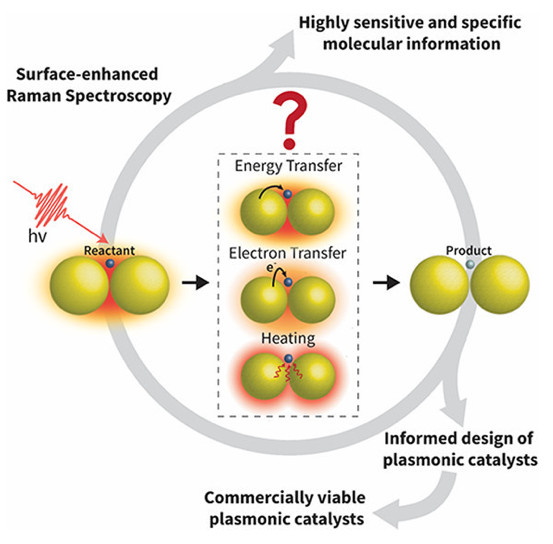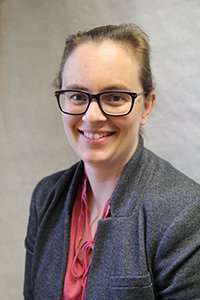Professor Renee Frontiera
Professor Renee R. Frontiera
Department of Chemistry
University of Minnesota
Spectroscopic Probes of Plasmon-Driven Chemical Reactions
Plasmonic materials are highly promising catalysts for driving energetically unfavorable chemical reactions with sunlight, due to their large optical cross sections and ability to generate a number of hot holes and electrons. However, the efficiencies of most plasmon-driven processes are quite low, likely due to the lack of mechanistic understanding of the underlying physical processes. Plasmons can concentrate electromagnetic fields, can generate highly energetic electrons and holes, and can heat up local environments. An understanding of the energy partitioning into each of these processes is crucial to the design of plasmonic photocatalysts which are optimized for chemical selectivity. Here I’ll discuss our development of ultrafast surface-enhanced Raman spectroscopy (SERS) to probe the contributions of plasmon-generated hot electron transfer, heating, and vibrational energy transfer on timescales relevant to photocatalysis. Specifically, we are able to quantify plasmon-driven charge transfer processes by monitoring the rate and yield of reduced molecular adsorbates, as well as monitoring energy transfer and heating processes through ultrafast Raman thermometry. These efforts in developing a fundamental understanding of plasmon-mediated processes in molecules will ultimately aid in the rational design of cost-effective plasmonic materials capable of driving industrially relevant chemistries using solar radiation.

Renee Frontiera
Renee R. Frontiera is the Northrop Professor of Chemistry at the University of Minnesota. Her research group uses Raman spectroscopic techniques to examine chemical composition and chemical reaction dynamics on nanometer length scales and ultrafast time scales. She received her Ph. D. in 2009 from the University of California – Berkeley in Richard Mathies’ group, and did her postdoctoral research with Richard Van Duyne. Her research group at the University of Minnesota was founded in 2013, and she is the recent recipient of an NSF CAREER award, a DOE Early Career award, and an NIH Maximizing Investigators’ Research Award (MIRA). She was named one of Chemical & Engineering News’s “Talented 12”, and has won a Journal of Physical Chemistry Lectureship, the American Physical Society’s “Future of Chemical Physics” lectureship, and a Camille Dreyfus Teacher-Scholar award.
